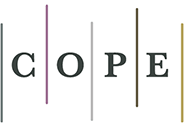The Impact of Human Resource Audits and Organizational Commitment on Employee Performance
DOI:
https://doi.org/10.51747/6vhzdq47Keywords:
human resource audit, Organizational Commitment, employee performance, pharmaceutical retail, workforce effectivenessAbstract
This study explores the influence of human resource audits and organizational commitment on employee performance in the pharmaceutical retail sector, specifically at Kimia Farma Apotek Unit Bisnis Jember. Using a quantitative approach with a causal associative design, the research examines how HR audits, which systematically assess HR practices, and organizational commitment, which reflects employees' emotional attachment to their organization, contribute to improving employee performance. The study finds that both HR audits and organizational commitment positively affect employee performance, with organizational commitment showing a stronger impact. Data were collected from employees using structured questionnaires, and the analysis was conducted using Partial Least Squares Structural Equation Modeling (PLS-SEM). The results indicate that organizations with well-implemented HR audits and a strong sense of employee commitment achieve better performance outcomes. These findings emphasize the importance of integrating systematic HR evaluations and fostering emotional bonds with employees to optimize workforce effectiveness. Future research could investigate additional factors influencing performance, such as job satisfaction, and extend the study to other regions or sectors to validate these results.
References
Dhany, U. R., & Rahmansyah, A. I. (2022). Pengaruh Return On Assets dan Debt To Equity Terhadap Return Saham Degan Inflasi Sebagai Pemoderasi. Owner, 6(3), 3312–3323. https://doi.org/10.33395/owner.v6i3.1110
Dhany, U. R., Rahmansyah, A. I., & Musriati, T. (2025). Pengaruh QRIS terhadap Informasi Akuntansi dan Keputusan Keuangan dengan Moderasi Literasi Digital pada Pedagang Tradisional. AKUA: Jurnal Akuntansi dan Keuangan, 4(3), 546–555. https://doi.org/10.54259/akua.v4i3.5375
Fadhilah, S. (2021). Pengaruh Audit Sumber Daya Manusia Terhadap Kinerja Karyawan pada Rumah Sakit X. Jurnal Manajemen Sumber Daya Manusia, 11(2), 79–88.
Ghozali, Imam. (2021). Partial Least Squares Konsep Teknik Dan Aplikasi Menggunakan Program Smartpls 3.2.9 Untuk Penelitian Empiris. Semarang: Badan Penerbit Universitas Diponegoro.
Hair, J. F., Hult, G. T. M., Ringle, C. M., & Sarstedt, M. (2019). A Primer on Partial Least Squares Structural Equation Modeling (PLS-SEM). Sage Publications.
Hudzafidah, K., Dhany, U. R., & Rahmansyah, A. I. (2023). Effect of Profitability on Social Responsibility (CSR) in Indonesia: Environmental Performance as a Moderator. Wiga : Jurnal Penelitian Ilmu Ekonomi, 13(1), 103–113. https://doi.org/10.30741/wiga.v13i1.974
Hudzafidah, K., Rahmansyah, A. I., Dhany, U. R., & Suharsono, J. (2023). Pengaruh Rasio Profitabilitas Terhadap Harga Saham Dengan Ipo Sebagai Variabel Moderating. Jesya (Jurnal Ekonomi Dan Ekonomi Syariah), 6(1), 1090–1099. https://doi.org/10.36778/JESYA.V6I1.1163
Indarto, M. (2015). The Effectiveness of Human Resource Audit in Pharmaceutical Industry. Jurnal Manajemen Sumber Daya Manusia, 3(1), 56–71.
Mekta, D. (2023). The Impact of Organizational Commitment on Employee Performance in Healthcare Sectors. Jurnal Manajemen dan Bisnis, 15(2), 102–115.
Pamungkas, D., Wulandari, S., & Anggraeni, Y. (2023). The Role of Human Resource Audits in Employee Performance: A Study in Retail Industry. Jurnal Ekonomi, 19(4), 241–258.
Pramudya, R. (2017). The Role of Human Resource Audit in Organizational Performance. Jurnal Akuntansi dan Manajemen, 12(1), 39–52.
Rahmansyah, A. I., & Dhany, U. R. (2023). Kinerja Keuangan, Corporate Social Responsibility, Dan Peran Earnings Per Share. Measurement Jurnal Akuntansi, 17(2), 196–205. https://doi.org/10.33373/mja.v17i2.5682
Rahmansyah, A. I., Dhany, U. R., Musriati, T., & Widianita, N. P. (2024). Pengaruh Inklusi Keuangan terhadap Kinerja dan Keberlangsungan UKM pada Pujasera Alun-Alun Kota Probolinggo. Measurement Jurnal Akuntansi, 18(2), 302–313. https://doi.org/10.33373/mja.v18i2.7231
Rahmansyah, A. I., Hudzafidah, K., & Bahri, M. S. (2024). Kepemilikan Manajerial sebagai Moderasi Pengaruh Kinerja Keuangan terhadap Financial Distress di Indonesia. RELASI : JURNAL EKONOMI, 20(2), 369–385. https://doi.org/10.31967/relasi.v20i2.1110
Rizal, M., Alam, H. V., & Asi, L. L. (2023). The Influence of Organizational Commitment on Employee Performance. Jurnal Ilmiah Manajemen, 5(3), 1126–1140.
Shaleh, A. (2018). Organizational Commitment: A Review of Theoretical and Empirical Studies. Jurnal Manajemen Sumber Daya Manusia, 8(3), 250–267.
Sujana, D. (2024). The Impact of Human Resource Management Practices on Employee Performance: A Literature Review. Jurnal Manajemen, 11(1), 21–35.
Sugiyono, H. (2020). Metode Penelitian Kuantitatif, Kualitatif, dan R&D. Bandung: Alfabeta.
Wulandari, W. (2024). The Role of Organizational Commitment in Improving Employee Performance. Jurnal Akuntansi, 5(2), 89–98.
Zikmund, W. G., Babin, B. J., Carr, J. C., & Griffin, M. (2020). Business Research Methods. 10th ed. Cengage Learning.
Downloads
Published
Issue
Section
License
Copyright (c) 2025 Ahmad Fawzi Jailani , Ngatimun, Elok Dwi Vidiyastutik, Lusi Endang Sri Darmawati (Author)

This work is licensed under a Creative Commons Attribution-NonCommercial 4.0 International License.










